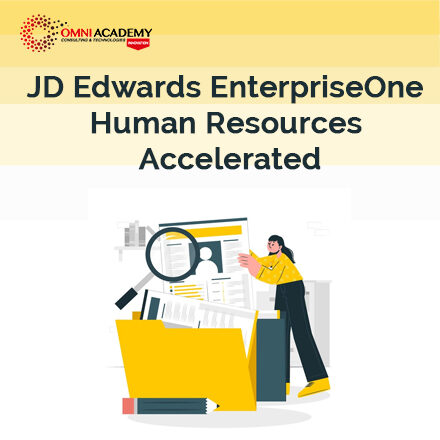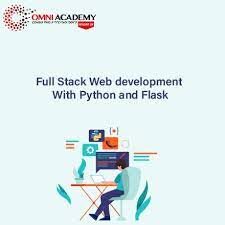Construction Professional in Built Environment Projects (PMI-CP)
The Project Management Institute (PMI) offers professional certification for construction and build environment professionals known as the Professional in Built EnvironmentProjects (PMI-CP)TM. PMI’s professional certification examination development processes stand apart from other project management certification examination development practices.
Course Key Learnings:
Upon completion of this course, participants will be able to:
- Understand the effective communication techniques in Built Environment Projects
- Equipped to build communication plans, manage stakeholder communications, and use methods such as Obeya & commitment-based management.
- Learning tools such as project management information systems and compass diagnostic tool empower learner’s communication skills
Course Exam Content Outline:
Domain I Contracts Management—51%
Task 1 Manage risks and the risk process for Construction and Built Environment Projects
• Recognize positive risk and use it to improve project outcomes
• Manage the risk process throughout the project and gain input from the required
stakeholders
• Apply the different risk classifications appropriately
• Identify and evaluate risks for better allocation, avoidance, and management of risks
• Manage the risk prioritization process during Front End Planning and conduct frequent reviews to the prioritization matrix
• Identify and overcome the barriers that built environment companies face when implementing innovative solutions
• Determine the impact and risk of technology decisions or lack thereof, on the projectthroughout the lifecycle and apply corrective actions
Task 2Determine how to apply risk tools appropriately
• Use the Integrated Project Risk Assessment (IPRA) tool to improve how risk are managed
• Apply risk management tools and techniques to drive a better risk process (MonteCarlo simulations, probabilistic risk management techniques, and risk registers)
• Mobilize a risk management framework process at the project outset
Task 3 Manage the claims process
• Use lessons learned and previous project data to identify problematic areas on projects that result in claims
• Recognize how contract types and delivery methods selected impact the frequency of claims
• Utilize the claims process and key intervention points to reach early resolution
• Distinguish the difference between change/variation orders and claims
• Apply best practices to prevent claims and disputes (i.e. FEP, DRB, Documentation, communication, etc.)
• Utilize the risk management framework effectively to reduce claims
• Determine the root cause of claims and areas that require greater attention on the front end of projects
• Apply the different dispute resolution techniques available to be used
Task 4 Mange the contract lifecycle effectively
• Oversee the full contract lifecycle from discovery to close out
• Utilize Lean Integrated Project Delivery and IFOA to help resolve some of the industries contracting pain
• Utilize important clauses present in built environment contracts to support project delivery
• Advise senior stakeholders on the delivery method and contract structure that best fits the needs of the project
• Utilize the various delivery methods and contract structures available for built
environment project covering risk apportionment, roles and responsibilities, and project delivery
• Apply innovation & technology requirements up-front in the tendering process (RFI/RFP)
• Recognize the potential for communication gaps caused by contractual arrangements found in capital projects
• Apply knowledge to support senior leadership throughout the contract lifecycle
Task 5Plan the Materials and Procurement Management processes accurately
• Plan and trace the cash flow of materials, its controls and debt service to improve planning and cost accuracy
• Implement the end-to-end materials management process with all of its stages:
Strategy, Planning & Engineering, Ordering, Delivery, Storing, Managing Goods, Closing & Handing Over, and Managing Waste
• Leverage the new and emerging industry trends such as prefabicates or modularization
• Assess and determine the impact of critical path and lead times in materials management
• Recognize the different stages of the materials lifecycle and utilize the best practices
• Efficiently plan all stages of the material delivery process
• Apply methods for quantity planning, budgeting, and estimation
Task 6Perform the Materials and Procurement Management activities accurately
• Identify the pitfalls involved in on-site and off-site handling, transportation, and tracking of materials
• Apply the benefits of the economies of scale role in managing procurement and
supply chain processes
• Apply waste management practices to a project and integrate materials and
suppliers with the schedule
• Apply best practices for ordering and managing materials in the project construction
phase
• Apply methods for inspecting damaged goods, stock control, storage, and warehouse
placement
Task 7 Implement the Interface Management process efficiently
• Establish and plan all the interface points (IPs) between the different packages
• Classify the different interfaces found in mega projects
• Recognize and use the industry leading frameworks and systems for implementing
Interface Management
• Apply and design effective Interface Management practices
• Identify and apply the important principles and proper timing to guide the
implementation of Interface Management throughout the project life cycle
• Apply the defined skills needed to effectively lead an interface management plan and
monitor this effectively throughout the project
• Develop strong communication skills, relationship management skills, and negotiation skills
• Utilize the common language, definitions, and elements of Interface Management
Domain II Stakeholder Engagement—15%
Task 1 Utilize Communication Tools Appropriately to engage stakeholders and maintain proper communication
• Utilize PMIS to improve communication and project decisions
• Incorporate a central communication platform for the project
• Utilize Obeya/Big Room to enhance program activities
• Recognize the common pitfalls of Obeya/Big Room
• Apply Commitment based Management (CbM) to your own teams and across
projects to drive effective outcomes
• Utilize the Compass tool to highlight communication deficiencies
• Assess data collected to infer meaningful insights and take action
Task 2 Prevent communication issues from occuring and ensure stakeholders are engaged
• Apply approaches to increase stakeholder buy in and alignment from the project outset
• Develop an effective communication strategy to ensure all project communication needs are identified and met
• Craft messaging that drives greater understanding for tailored audiences
• Utilize nuanced communication methods to engage multiple parties on a deeper level
• Prevent the effects of poor communication in capital projects from a completion and financial prospective
Task 3Mitigate communication issues effectively as they emerge
• Implement feedback loops to highlight gaps and introduce changes to resolve communication gaps
• Apply approaches to overcome resistance and secure support through high impact communication
• Develop action plans to resolve communication gaps
• Identify and address culture issues as they emerge
Task 4 Manage stakeholders effectively
• Cooperate with project stakeholders to identify and select the best technology
solutions
• Recognize what needs to be done, identify the appropriate specialists, and bring the required skills in to do the work
• Support the project team when implementing technology
• Identify and assess stakeholders to help establish an effective communication strategy
• Recognize the rule of culture and the impact on communication with stakeholders
• Make appropriate project team organizational recommendations for AWP
implementation
• Recognize how culture impacts innovation
Domain III Strategy and Scope Management—29%
Task 1 Manage Scope Effectively
• Determine the factors to be considered when developing a technology implementation plan
• Define scope and drive projects by focusing on project outcomes or missions
• Implement scope revisions in order to achieve an accurate and mature project scope
• Identify the different ways to innovate (process innovation, product and services innovation, project delivery innovation) and ensure they lead to better project outcomes during implementation
• Select the correct metrics and KPIs
• Apply Agile practices in construction
• Apply concepts including constraint management and continuous improvement appropriately
• Recognize and handle problematic Hot Spots within construction and commissioning phases
• Build a successful performance management strategy
Task 2 Implement and Manage the Change Order Process effectively and deliver project benefits and value
• Create a robust change order process
• Finalize the change process in the appropriate part of the project lifecycle
• Design agile processes to deal with change orders in an efficient and rapid way
• Recognize the benefits and downfalls to using technology to manage scope and
change orders
• Evaluate all scope changes in relation to the core outcomes
Task 3 Develop and apply methods, tools and techniques to develop and manage project scope
• Apply a decision-making framework for technology implementation
• Use scope evaluation tools to identify gaps in scope
• Apply scope management tools as a means of managing and pivoting scope (value
engineering and cost benefit analysis)
• Establish an effective project measurement reporting process
• Implement engineering (technical design deliverable) as a critical element of the planning process
Task 4Implement the Advanced Work Packaging model and tools effectively
• Recognize the Advanced Work Packaging (AWP) implementation model and apply it
appropriately across the project lifecycle
• Recognize and implement the different stages, process steps, activities, and
deliverables of the AWP implementation model
• Utilize AWP tools, including templates and checklists appropriately
• Apply the principles of Lean and the Last Planner System to the planning of projects
• Apply the Commissioning and Startup (CSU) activity model and its tools correctly
• Utilize the 5 Connect conversations correctly
Task 5Implement and utilize innovative planning tools on projects, adhering to bestpractices
• Apply Lean Deployment Planning Guide core principles
• Recommend latest technologies and their value potential to drive productivity and
its efficiency within projects
• Demonstrate the importance of integrated technology platforms to realize the benefits of technology solutions to drive collaboration
• Apply the methods to support innovation on projects
Free Exam Practice:
- How to Pass Project Management Professional -PMP
- How To Pass BCS ISEB-PM1 Foundation Certificate in Project Management
- How to Pass IIBA ECBA- Entry Certificate in Business Analysis
- How to Pass PMI PgMP Program Management Professional
- How to Pass Certified Associate in Project Management
PMP Job Interview Questions and Answers
- PMP Certified Candidate Interview Questions
- Top 30 Project Management Interview Questions
- Project Manager Job Interview Questions
International Student Fees: 350 US$
Job Interview Preparation (Soft Skills Questions & Answers)
- Tough Open-Ended Job Interview Questions
- What to Wear for Best Job Interview Attire
- Job Interview Question- What are You Passionate About?
- How to Prepare for a Job Promotion Interview
 Your FREE eLEARNING Courses (Click Here)
Your FREE eLEARNING Courses (Click Here)
Internships, Freelance and Full-Time Work opportunities
Flexible Class Options
- Week End Classes For Professionals SAT | SUN
- Corporate Group Trainings Available
- Online Classes – Live Virtual Class (L.V.C), Online Training
Popular Courses
PMI Scheduling Professional (PMI-Sp)
Certified Associate in Project Management (CAPM)
Project Management (PMP) Certification
Project Management Essentials Cost, Time, Quality
CBAP Training – Certified Business Analysis Professional
Developing a Digital Transformation Roadmap









 WhatsApp Us
WhatsApp Us